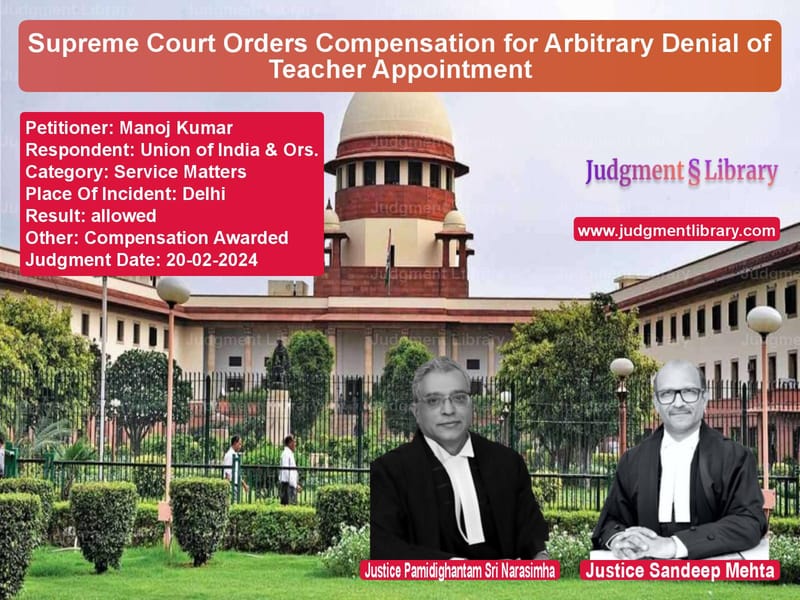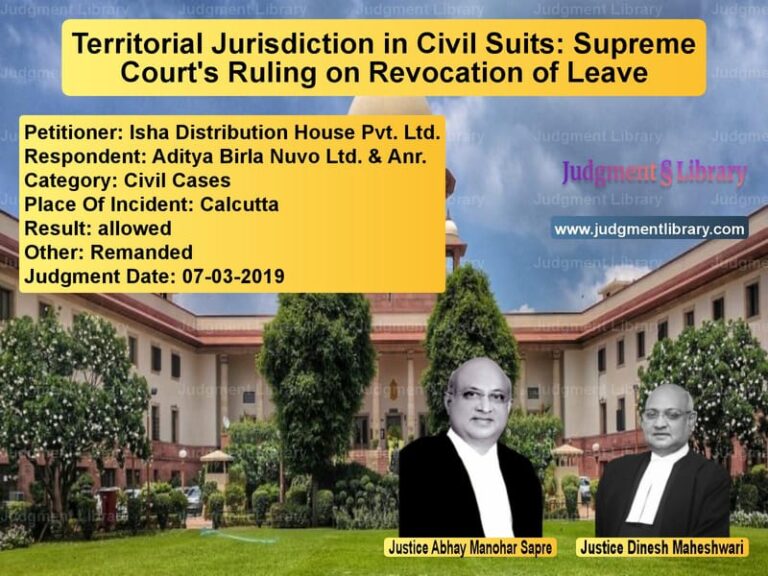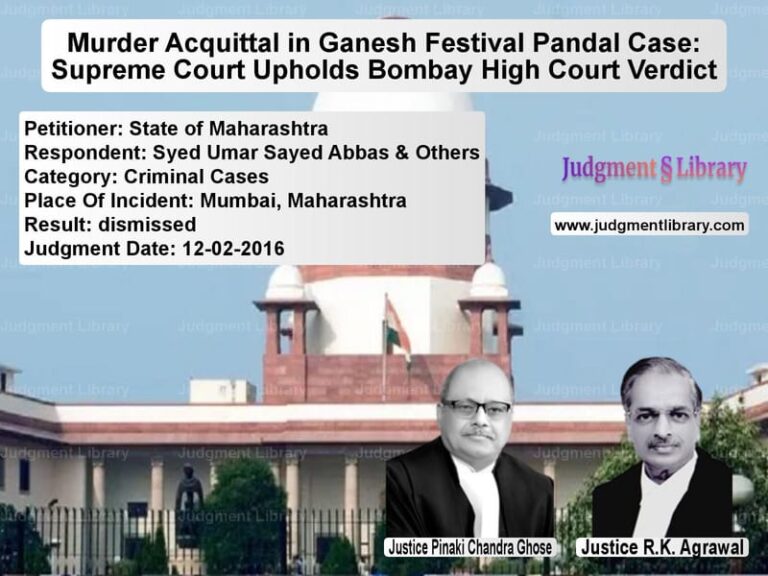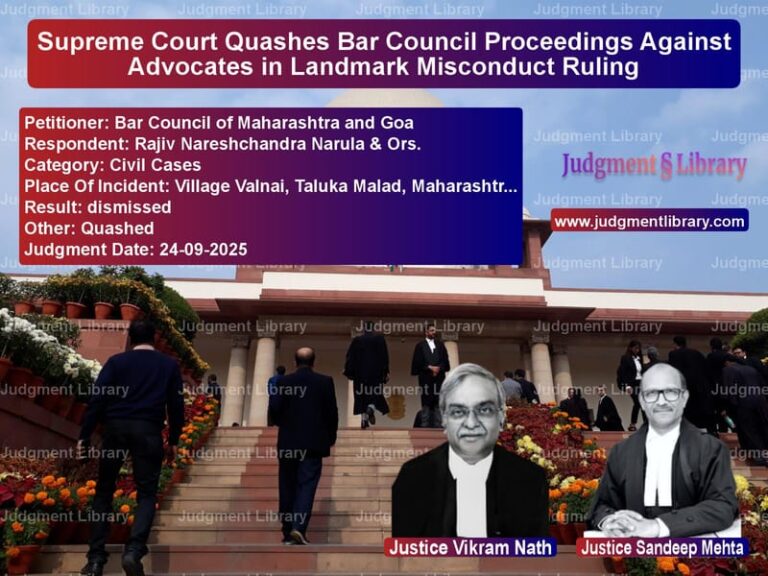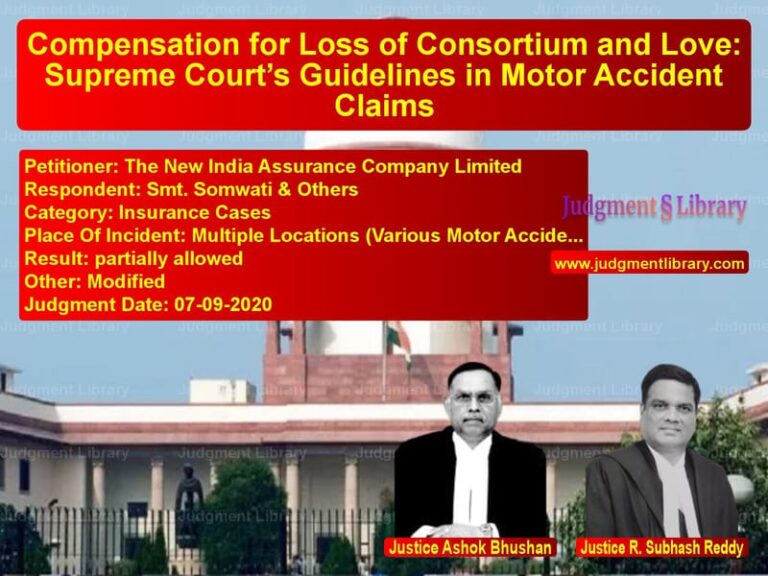Supreme Court Orders Compensation for Arbitrary Denial of Teacher Appointment
The Supreme Court of India recently ruled in favor of Manoj Kumar, an aspiring primary school teacher, who was denied appointment due to an arbitrary decision by the Pt. Deendayal Upadhyaya Institute for the Physically Handicapped. The Court found that the denial of marks for his postgraduate degree was unjustified and directed the Institute to pay compensation for the wrongful action.
Background of the Case
In March 2016, the Pt. Deendayal Upadhyaya Institute issued an advertisement inviting applications for the post of primary school teachers. The eligibility criteria required candidates to have a senior secondary qualification along with a diploma in elementary education. The selection process initially included an interview.
However, on April 27, 2016, the Institute issued a notification removing the interview requirement and introduced an additional marks system. Under this revised process, candidates were awarded additional marks based on their academic qualifications:
- Postgraduate Diploma: 5 marks
- Postgraduate Degree: 6 marks
- MPhil/Professional Qualification: 7 marks
- PhD: 10 marks
Manoj Kumar applied for the post and participated in the selection process. When results were declared on May 22, 2017, he received a total of 57.5 marks, while another candidate (Respondent No. 3) secured 58.25 marks. The reason for this difference was that Respondent No. 3 had been awarded 7 additional marks for holding a Master of Education (M.Ed.) degree. However, Kumar was denied 6 marks for his postgraduate degree on the ground that it was not in a “relevant subject.”
Legal Proceedings
Manoj Kumar challenged this decision by filing a writ petition before the Delhi High Court, arguing that:
- He met all eligibility criteria and was arbitrarily denied marks for his postgraduate degree.
- Had he been given 6 marks for his PG degree, his total score would have been 63.5, making him the highest-ranked candidate.
- The Institute had no justification for adding a “relevant subject” requirement, which was not mentioned in the notification.
The Delhi High Court dismissed his petition, relying on University Grants Commission v. Neha Anil Bobde (Gadekar), stating that academic institutions have the discretion to set eligibility criteria. Kumar then filed an appeal, which was again dismissed on similar grounds.
In 2019, Kumar approached the Supreme Court, arguing that the denial of marks was arbitrary and violated his right to fair consideration for public employment.
Supreme Court’s Observations
The Supreme Court examined whether the Institute had acted within its legal authority and whether its decision was arbitrary. The Court found multiple inconsistencies in the selection process:
- The vacancy notification did not specify that the postgraduate degree had to be in a “relevant subject.”
- The additional marks system explicitly listed PG degrees as eligible for 6 marks, without any restriction.
- The Institute’s argument that it had discretion under Clauses 14 and 19 of the vacancy circular was rejected, as these clauses could not justify arbitrary exclusion.
The Court ruled:
“This is a classic case of arbitrary action. The submission based on Clauses 14 and 19 must fail here and now.”
Additionally, the Court emphasized:
“If we add the requirement of specialization to the category of PG Degree, then that category becomes redundant. The whole purpose of providing PG Degree independently and allocating a lesser quantum of 6 marks will be lost.”
Closure of the School and Compensation Awarded
During the hearing, the Court learned that the school where Kumar had applied for a teaching position was closed on April 1, 2023. The vacancy was no longer available, making his appointment impossible.
Recognizing the injustice done to Kumar, the Supreme Court exercised its powers of judicial review and granted compensation:
“The Institute (Respondent No. 2) is directed to pay an amount of ₹1,00,000 as compensation to the appellant within six weeks.”
The Court further imposed ₹25,000 in costs on the Institute for engaging in arbitrary action.
Legal Implications
The judgment sets an important precedent in public employment cases, reaffirming that:
- Selection processes must adhere strictly to advertised criteria.
- Arbitrary modifications to qualification requirements are impermissible.
- Courts can award compensation for injustice, even when reinstatement is not possible.
Conclusion
The Supreme Court’s decision underscores the importance of fairness in public recruitment and judicial oversight in cases of executive overreach. While Manoj Kumar could not be granted the teaching position, the ruling ensures that arbitrary actions by authorities do not go unpunished, setting a strong precedent for future cases.
Petitioner Name: Manoj Kumar.Respondent Name: Union of India & Ors..Judgment By: Justice Pamidighantam Sri Narasimha, Justice Sandeep Mehta.Place Of Incident: Delhi.Judgment Date: 20-02-2024.
Don’t miss out on the full details! Download the complete judgment in PDF format below and gain valuable insights instantly!
Download Judgment: manoj-kumar-vs-union-of-india-&-ors-supreme-court-of-india-judgment-dated-20-02-2024.pdf
Directly Download Judgment: Directly download this Judgment
See all petitions in Employment Disputes
See all petitions in Recruitment Policies
See all petitions in Public Sector Employees
See all petitions in Judgment by P.S. Narasimha
See all petitions in Judgment by Sandeep Mehta
See all petitions in allowed
See all petitions in Compensation Awarded
See all petitions in supreme court of India judgments February 2024
See all petitions in 2024 judgments
See all posts in Service Matters Category
See all allowed petitions in Service Matters Category
See all Dismissed petitions in Service Matters Category
See all partially allowed petitions in Service Matters Category

